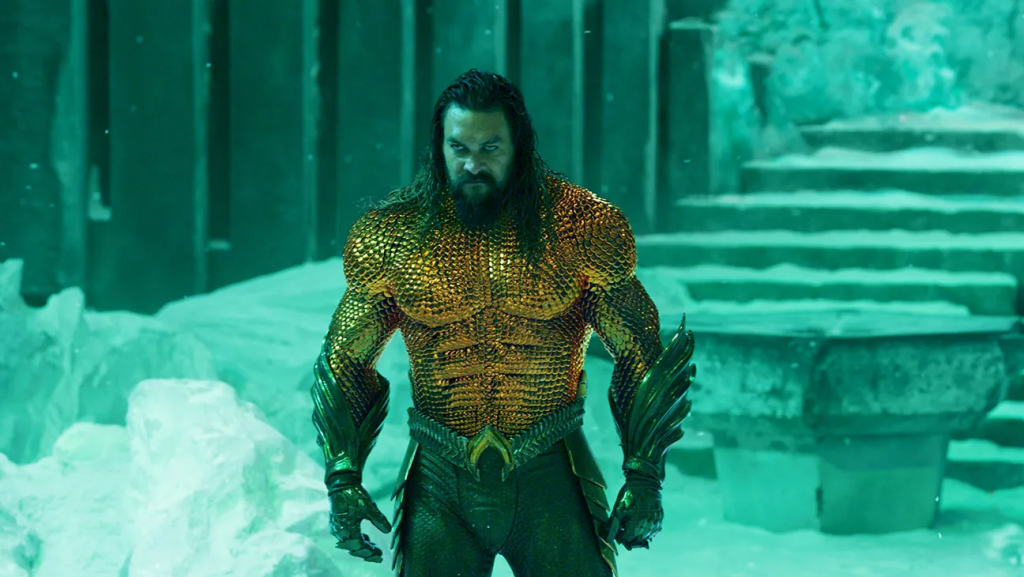DC and Warner Brothers have recently released their newest superhero movie, “Aquaman and the Lost Kingdom.” A sequel to the highly successful first film from 2018, which earned over one billion dollars at the box office, this story sees Jason Mamoa return as Arthur Curry, the King of Atlantis. Aquaman and his allies, including his previously villainous half-brother Orm, must defeat Black Manta before he can unleash an ancient and lost force of death and destruction.
This film marks the end of the DC Extended Universe (DCEU), the connected films having begun with 2013’s “Man of Steel.” Though feelings on this past decade of superhero storytelling have often been mixed, as DC goes into its reinvention beginning fully with 2025’s “Superman: Legacy,” it is clear that “Aquaman and the Lost Kingdom” represents the end of an era. So what note does this film leave all of this on? Unfortunately, though fans of the first film will likely enjoy and appreciate many aspects of this movie, overall it seems to end the DCEU with a whimper rather than a bang.
Having watched this film, it is evident that the people making it, both on camera and behind it, were having fun throughout the process. This can be seen in character interaction, dynamic camera movements, fun concepts and designs and the tone of various scenes. There are moments where characters are just doing something cool and the excitement becomes infectious as Aquaman is taking down bad guys or traversing the sea on a giant seahorse.
Mamoa and the rest of the film’s cast for the most part seem to enjoy these characters and what they are doing, and it really helps at times when the audience can find themselves pulled out of the film or losing interest momentarily. The visuals also keep viewers engaged. This film brings us back to “Aquaman” (2018) director James Wan’s incredibly vivid and breathtaking world of Atlantis. On par with the first movie, the sequel showcases the kingdoms, creatures and magic of this corner of the DC Universe and utilizes its visuals and set pieces to effectively world-build and make it all feel real in many ways. When at its best, the viewer is immersed in Atlantis and other fantastical settings as the characters go about their journey. What detracts from all of this, though, would be what that journey is and what the writers were trying to accomplish with the film’s plot.
What is incredibly evident about “Aquaman and the Lost Kingdom’’ is that it is trying to make a commentary on climate change and its impact on the planet. This is of course something incredibly important and relevant, especially considering the character and world portrayed, and was also addressed in the first film — though to a much greater effect. Although it is a plot point in the 2018 film, serving as part of Orm’s reason for hating the surface world, in the sequel the issue of climate change becomes the entire plot in a sense. The sequel builds its story around the issue in an incredibly overt and heavy-handed way, taking out all subtlety that could’ve created a powerful message and leaving what at times felt like a $200 million public service announcement.
The film simply lacks substance and leans on what have become cliches of the genre to tell its story, which is quite literally about Black Manta releasing mass amounts of greenhouse gasses to melt the ice caps, releasing a force of death while also coming close to killing the next generation in the process. Though there are interesting elements, such as exploring Arthur as a new father and balancing that with his roles as a hero and king, they don’t get the attention that they deserve and are mainly utilized for seemingly forced drama and stakes in the problematic and bloated third act.
The film falls into many of the pitfalls of modern superhero movies and in addition to that shoehorns in its climate change message without any semblance of subtlety at every turn. Its undoubtedly important message becomes so forced that it often causes eye-rolling reactions in its audience. Messaging such as this is best as a subplot or motivation, not the entire basis of the movie and its story. This ends up arguably undercutting what it may be trying to accomplish by pushing its commentary too much and too hard on the viewers.
Overall, “Aquaman and the Lost Kingdom” is a visually stunning film that does at times feel like the thought and effort ended there. Though fun and engaging at times, particularly when it focuses on what plot and character moments it does have, it is a far cry from the original film and doesn’t quite stand out within its genre. Hopefully, as DC leaves behind the DCEU and enters its limited release slate of 2024 as somewhat of a palate cleanser, they will be able to start somewhat fresh with fans excited for their new universe under James Gunn’s DC Studios.
Rating: 2.5 out of 5 stars



